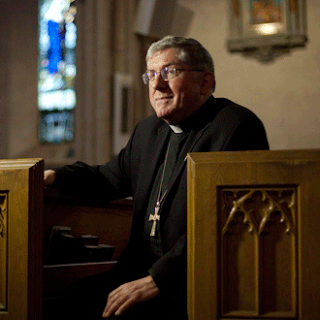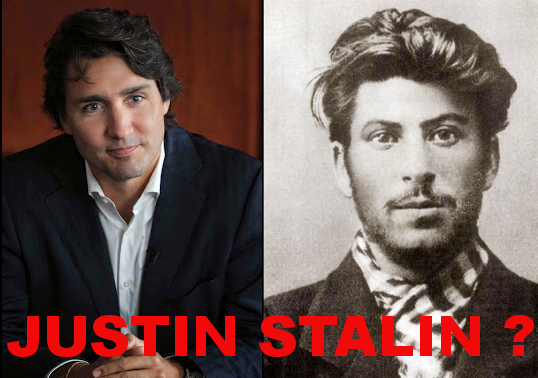A few years ago, I attended a Mass concelebrated by these two prelates followed by a breakfast, speech and book-signing whilst Archbishop Chaput was still at the See of Denver. It was obvious that they were more than just colleagues, but friends. The Church has been served well by these two faithful men. May God bless them for their faith and wisdom amidst such darkness and chaos.
Clearly, these two Shepherds are Catholic!
Relatio – Circulus Anglicus “D”
Moderator: Thomas Christopher Card. COLLINS
Relator: S.E. Mons. Charles Joseph CHAPUT, O.F.M. Cap.
 Members of English circle D again stressed the need to support the many families that already live the Catholic understanding of marriage and family life joyfully.
Members of English circle D again stressed the need to support the many families that already live the Catholic understanding of marriage and family life joyfully.
Members of our group revisited the importance of the Church acknowledging the role of women and mothers and men and fathers. Our ecumenical representative felt the document should address the whole Christian community and not simply the Catholic Church. Much discussion took place about the importance of funerals in the lives of families. Members felt this matter deserves far more attention, along with the role of the family in situations of illness and death.
Members felt that when the document talks about the Word of God, it needs to more fully convey the meaning of that term in the tradition of the Church. The Word of God refers to Jesus personally, to the written word of Scriptures, but also to the word proclaimed in the community.
Bishops said that the text paid inadequate attention to chastity formation. This work should begin very early in life and should not be delayed until marriage preparation. The danger of government authorities doing sex education caused great concern for many group members.
Regarding the formation of future priests, mention was made that the text lacks any focus on the Eastern tradition of married clergy. Reflections on that should also be included.
On the formation of Christians in the virtue of chastity, members noted a natural sequence:
First, formation in chastity within the family provides a needed foundation for later life;
Next, formation in chastity for those preparing for marriage builds on that earlier foundation,
Finally, formation in chastity for married men and women continues couples’ growth in the Christian life and sets the stage for the next generation.
In addition:
Formation in chastity for those preparing to be priests is key to their own vocation, and vital to their ability to help those they serve.
Group members insisted that the main educators of the laity in terms of marriage preparation should be married couples themselves because of their experience and credibility. Priests obviously have a key role as well, but married couples and families should take the lead.
Members discussed the place of priests in marriage counseling. Some strongly supported priests doing what they can to heal troubled marriages because the priest is often the most trusted and educated person available, and people are unable to afford professional counselors. The Church needs to be prudent, but not so prudent that she avoids helping people in great need.
One of the synod fathers stressed the importance of using appropriate language. Instead of referring to people in difficult situations as being “excluded” from the Eucharist, we should say that they “abstain” from the Eucharist. That word is more accurate and not as negative. One father mentioned that bishops cannot be more merciful than Jesus’s words. The Lord is not bound by Church rules, but the Church is very much bound by the words of Jesus.
Some thought that the current text lacks an understanding of the Eucharistic foundation of Christian marriage, which says we cannot reduce marriage to a sexual relationship. Likewise, we can’t reduce life in the Church to receiving Communion. In the history of the Church huge segments of the faithful did not receive Holy Communion and yet were clearly considered members of the Church, beginning with the Catechumens. For those who are on a penitential path, they are not excluded from the Church even though they abstain from Communion. Other fathers thought that the number of people who are divorced or remarried without an annulment has grown in such a big way that we need to deal with this question in a new and different manner.
Members spent quite a bit of time talking about the beauty and comprehensiveness of No. 84 of Familiaris Consortio.Some suggested that FC 84 ought to be put directly into the text. One father spoke about the power of the keys and the Holy Father’s ability to change things. He said that the Pope can, in effect, twist the hands of God. Others responded that the power of the keys does not give the Church the ability to change Revelation and the faith of the Church.
One member of the group felt that the Church has forgotten Jesus in all this discussion and that the bishops and many laypeople may be perceived as Pharisees. There was a call for a commission to study the issue of Communion for the divorced and remarried over a longer period of time with greater theological precision.
There was a suggestion that the Church ought to study the notion of spiritual communion more thoroughly. Just as Protestant communities participate in the reality of the Church, those who don’t receive Holy Communion can take part in the reality of the Eucharist.
Members spent some time talking about mixed marriages and marriages of disparate cult. The practice of the Orthodox Church also featured in the discussion. Some saw this as a good pastoral path for the Roman Church. Others felt there was little clarity in the Orthodox approach because several different practices among the Orthodox actually exist.
The section on the pastoral care of persons with homosexual tendencies sparked much discussion. Some members thought that this issue should be removed from discussion in the Synod on the Family. They felt that it’s important enough to have a specific synodal meeting on the topic itself. Some suggested that the wording of the Catechism of the Catholic Church No. 2357-2359 should be used. Others saw that option as possibly damaging the credibility of the Church in Western Europe and North America.
In the section on the transmission of life and the challenges of a declining birthrate, members offered both positive and negative comments. Most members felt that No. 137 should be removed from the text or completely rewritten, because the way one forms one’s conscience is handled poorly in the current document.
In the section on adoption, some discussion ensued about the right of a child to have both a mother and a father. Members noted the difficulty of some Churches in the western world continuing to offer adoption services in the face of government pressure to support adoption by same-sex couples.
Members said the text doesn’t speak clearly enough about palliative care, and the responsibility of the Church to help families in times of illness and when dealing with the confusion around modern medical/moral problems.
Considerable discussion took place about what is missing from the text in general. Among the items mentioned were:
1. The place of Catholic schools.
2. Mary, the mother of Jesus, should have greater mention and more significance.
3. Nothing in the text expresses gratitude to consecrated women who care for the sick and the elderly.
5. Not enough attention is paid to the role of single parents and ways to support them.
6. Not enough positive discussion takes place about the value of the extended family.
7. No mention is made of the role of godparents.
8. No clarity is offered on the roles of mother and father.
9. Many thousands of people help parents educate their children, but religious teachers aren’t mentioned, and even babysitters should get at least some brief attention because they can be very helpful to parents who need to work outside the home.
10. The text avoids dealing with the issue of sexual abuse and incest within families.
11. No significant emphasis is placed on the importance of family prayer, meditation and popular religiosity.
12. Something positive should be said about migrants who leave their home countries in order to send back money to support their families.
13. Finally, some members felt that something in the document should be said about the importance of praying for our deceased family members and the significance of those family members praying for us in the Communion of Saints.





